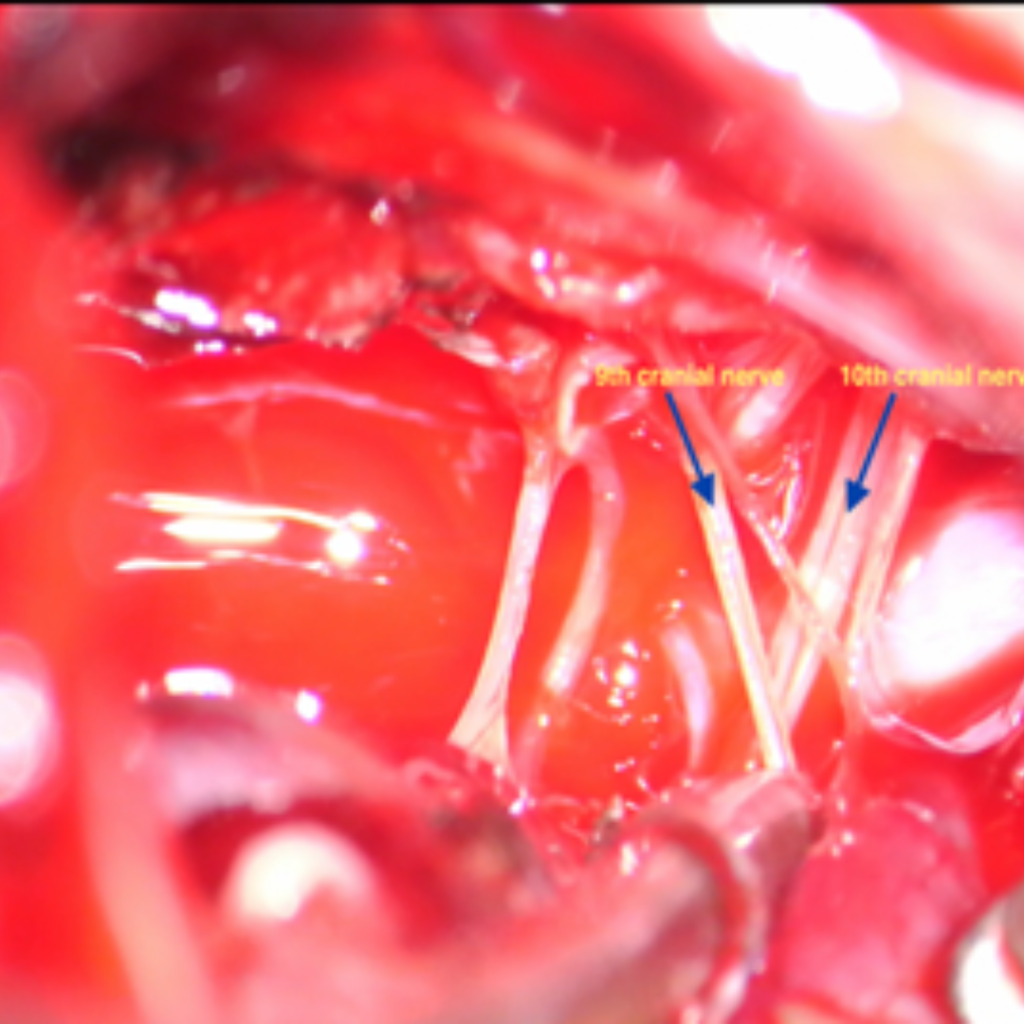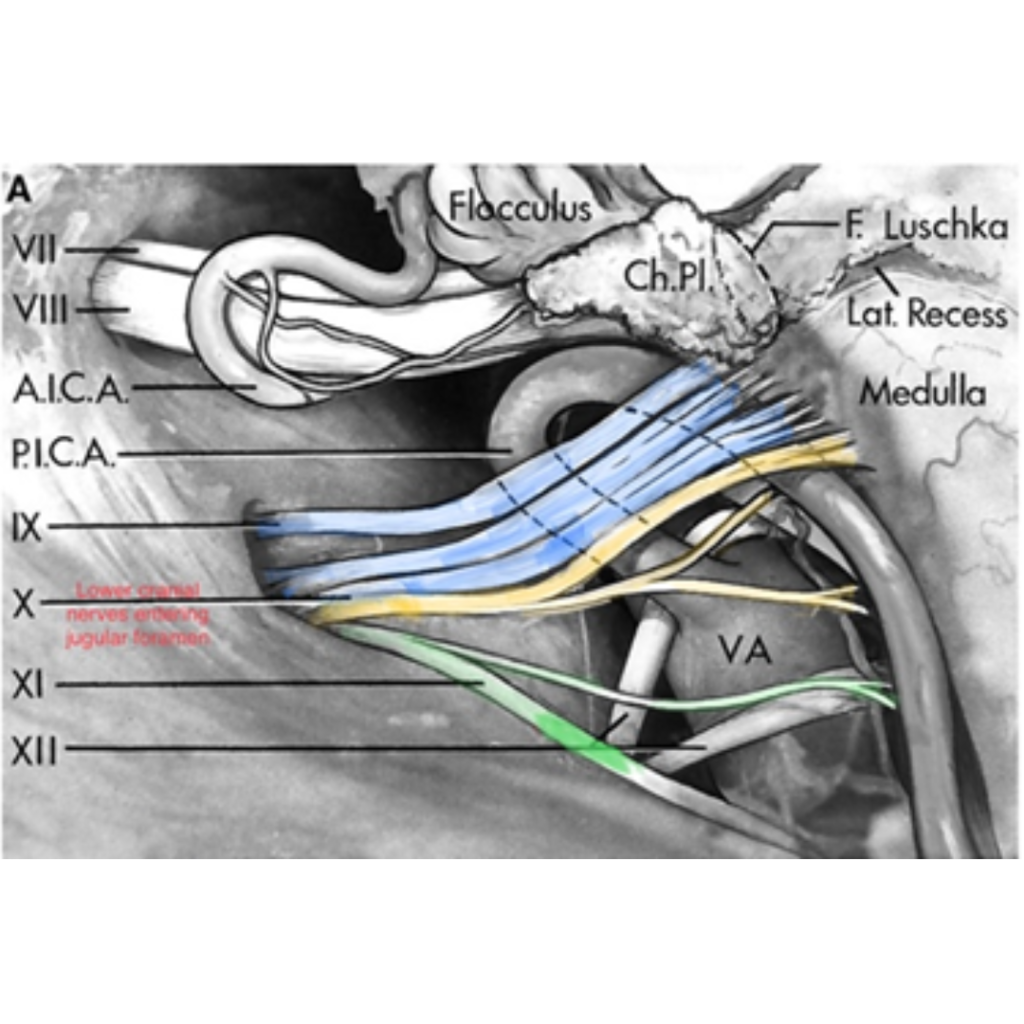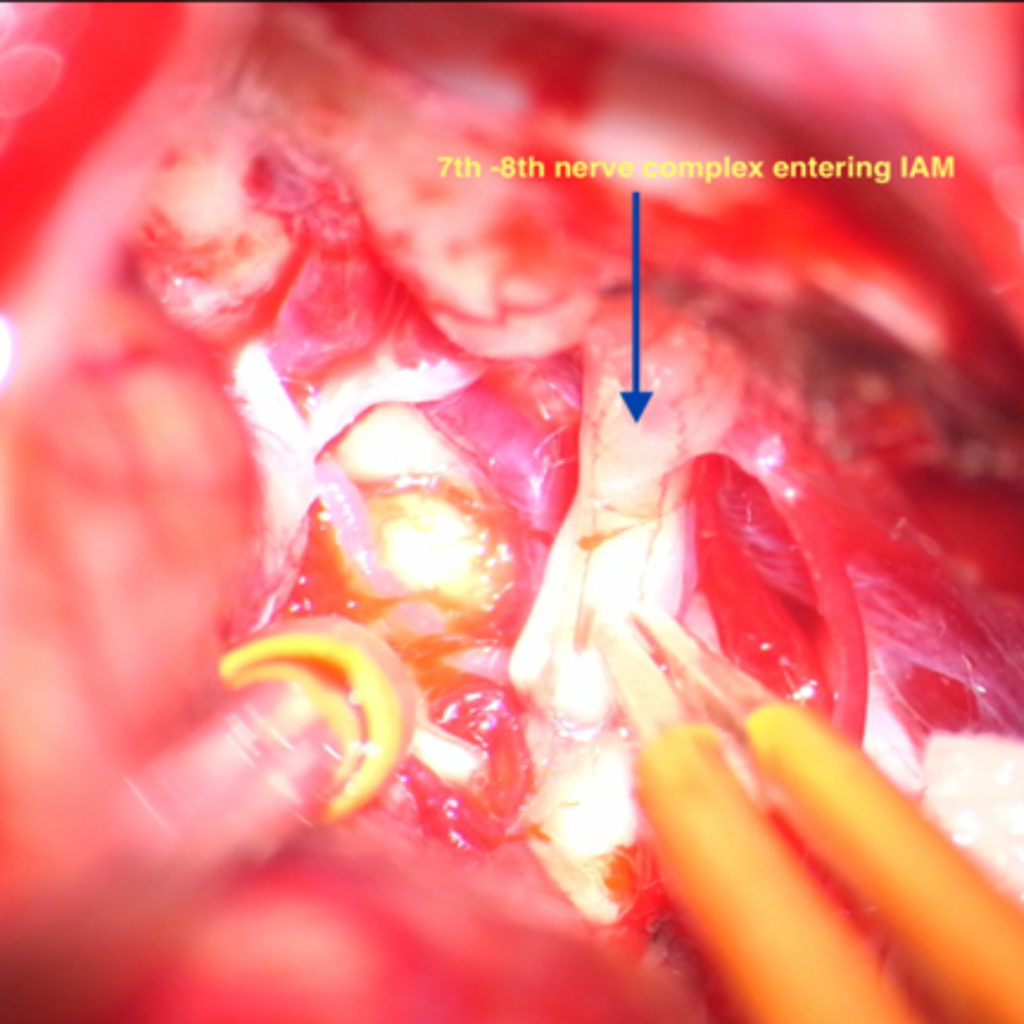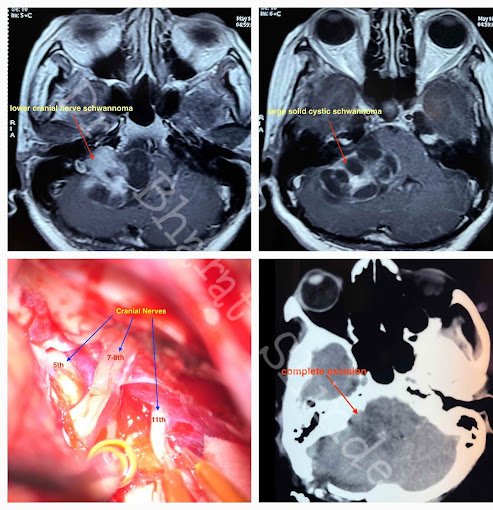Which nerves are called as Lower cranial nerves:
1. 9th: Glossopharyngeal
2. 10th: Vagus
3. 11th: Spinal accessory nerve
What is Schwannoma ?
Nerves are covered with Schwann cells. Tumor arising from it is called as Schwannoma.
Are these tumors malignant ?
These are benign tumors not spreading to any other sites.
What are the clinical features of Schwannoma ?
Schwannoma arising from any nerve impair function of that nerve. As lower cranial nerves helps in swallowing movements ,patients having lower cranial nerve schwannoma present with swallowing difficulty , nasal regurgitation, cough while drinking water.As tumor size increases it compresses brainstem, cerebellum leading patient to have swaying while walking , difficulty in balancing .
Are these tumors treatable ?
Smaller tumors less than 3 cm can be treated with GKRS , a form of radiotherapy. It controls growth rate of tumor. It requires close follow up and regular interval MRI of patient to see Increase in size.
Larger tumor requires surgery where part of bone behind ear is removed and tumor is decompressed with microscope.
There is no medicine at present to halt the growth of tumor .
Is surgery lifethreatnenig ?
Main aim of surgery is maximum safe resection while preserving the function of involved nerves. Ideally it is done under Neuromonitoring of involved nerves. Sometime it may not be possible to identify and separate nerve from tumor. In that case patient may face difficulty in swallowing , nasal regurgitation while drinking or repeated salivary micro aspiration into lungs leading to pneumonia. To avoid this, temporary tracheostomy may be required. Patient may have to put on ryles tube( tube through nose) to feed for shorter duration which may get prolong in case of non-improvement.
What will be the prognosis of patient ?
Removed completely with acceptable preserved nerve function , will have good prognosis and near normal life.
Patient with nerve deficit may require physiotherapy to regain control over swallowing and speech.
Residual tumor requires repeated follow up to check size which may require radiotherapy .
Lower Cranial nerves entering jugular fossa


Facial -Vestibulocochlear nerve complex entering IAM


Spinal Accessory Nerve







